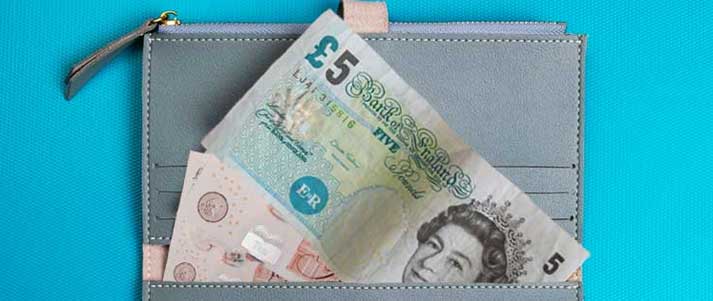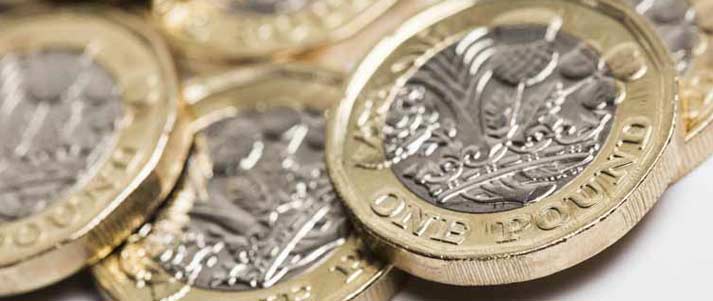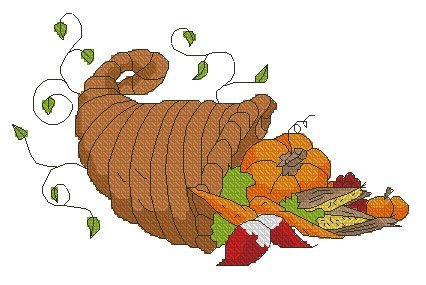Inflation has a huge impact on our money, and how far it goes. Here's an overview of what inflation is, how it works and how it impacts you.
Credit: Prostock-studio, MaxyM, bodabis – Shutterstock
'Inflation' is a very important banking term. But it can seem pretty confusing at first.
You'll have probably heard about it in the news and thought: but what actually is inflation, and how does it affect me? This guide is here to answer exactly that.
Below, we'll go through the key info about inflation to help you gain a solid understanding of how the changing rates impact you.
What's in this inflation guide?
- Meaning of inflation
- How is inflation measured?
- What causes inflation?
- What is the Bank Rate?
- What is shrinkflation?
- How does inflation impact you?
What does inflation mean?
Inflation refers to the general increase of prices over time. An inflation rate compares how much something costs now, compared to a year ago.
With inflation, you essentially get less for the same amount of money than you would have done the previous year.
There are over 700 commonly-bought things that are monitored for inflation in the UK. These include daily essentials like food, but also some high-priced purchases like cars.
How is inflation measured?

Credit: Yevgen Kravchenko, kamui29, Bell Photography 423 – Shutterstock
UK inflation rates are measured by looking at:
- Consumer Price Index (CPI)
- Consumer Price Index including housing costs (CPIH)
- Retail Price Index (RPI).
Here's an overview of what these terms mean.
Consumer Price Index (CPI)
CPI is essentially the cost of the average person's 'shopping basket'. There are loads of products and services that are studied to calculate the CPI.
In April 2022, CPI inflation made the headlines as it increased to 9% (the highest it had been in 40 years). That figure was calculated by comparing CPI in April 2022 and April 2021.
Consumer Price Index including housing costs (CPIH)
CPIH is very similar to CPI, except it also factors in housing costs for homeowners.
Factors such as mortgage payments and council tax can affect CPIH inflation.
Retail Price Index (RPI)
Often, when inflation is discussed in the news, the focus is on CPI and CPIH. RPI inflation doesn't tend to carry quite as much weight anymore. But, it is still important – especially for students.
RPI, like CPI, focuses on a 'shopping basket'. However, some of the products and services in the RPI basket are slightly different to the CPI one. Because of this, their rates of inflation tend to differ.
RPI has a big influence on student/graduate debt. Student Loan interest rates are usually based on the RPI figure from March of each year.
Each September, the RPI figure from March of that year is usually used to decide the interest rates for Student Loans.
The way that interest rates are decided for Student Loans varies across the UK. We explain this in a bit more detail later.
From April 2025, RPI will be used to determine how much the Student Loan repayment threshold will increase each year for students with Plan 2 loans. Find out more in our article about the Student Loan changes.
What causes inflation?
Here are some examples of factors that can affect inflation rates:
- Increased demand for goods or services – If more people are buying more of the same product or service, prices could go up in line with the increased demand.
- A limited supply of goods or services – When goods or services are in limited supply (e.g. gas or oil), prices will likely increase.
- Increase in the cost of materials – If manufacturing costs rise, products are likely to go up in price as a result.
- Increase in wages – When companies increase the amount they pay their workers, this will often lead to an increase in the cost of their products.
- Policy changes – Sometimes, policies introduced by the government can affect inflation rates. For example, if the tax that's applied to certain products drops or increases, this can affect the prices for consumers. Also, if a product's price goes down due to tax changes, consumers might buy more. As we mentioned in the first point, the increase in demand can lead to higher prices.
Inflation is also affected by the Bank Rate. This is a figure that's set by the Bank of England to influence inflation rates, by deciding how high the interest rates should be on things like savings accounts and credit cards. We explain this in more detail in the next point…
What is the Bank Rate?

Credit: Ink Drop – Shutterstock
The Bank Rate is set by the Bank of England with the aim of influencing inflation rates. You might also hear it referred to as the Bank of England Base Rate.
Currently, the Bank Rate is 1.25%.
The government sets the Bank of England a target to keep CPI inflation at 2%. And, to work towards this target, the Bank of England decides on the Bank Rate to determine how much banks should charge in interest for things like savings accounts and credit cards.
Generally speaking, to decide on the Bank Rate, the Bank of England considers how likely people will be to borrow or save money based on the interest rates.
If, say, interest rates are high, it will be easier to save money than it is to borrow. When it's harder to borrow money, this can reduce spending and bring down inflation rates.
On the other hand, if interest rates are low, it will be easier to borrow money than it is to save. This could increase spending and bring up inflation rates.
However, it's not quite as simple as saying that when inflation rates are high, the Bank Rate will be high to encourage people to save rather than spend money. While a high Bank Rate could theoretically reduce inflation rates, there are other potential issues that the Bank of England needs to think about.
One important factor is that, if people start spending a lot less, many companies will earn less money as a result. And, if companies earn less, this could lead to some employees losing their jobs.
So, the Bank of England needs to be very careful about how high or low they set the Bank Rate.
If you have a Plan 1 or Plan 4 Student Loan, the Bank Rate can be used to determine your interest rates. It will be whichever is lowest between the Bank Rate and RPI of March from the same year (more on this later).
To find out more about the Bank Rate and how it works, head over to the Bank of England's website.
What is shrinkflation?
Shrinkflation is when a product's price remains the same, but it reduces in size or quantity, meaning you get less for the same amount of money.
Some brands might feel reluctant to increase an item's price. Customers are likely to notice the change and be disappointed in the new cost.
So, instead of increasing the price, brands might choose to make the product smaller. This can be harder for the customer to spot.
When shopping, try to look out for shrinkflation.
For food items, an easy way to see if they've reduced in size is by checking the weight on their packaging. A chocolate bar that had been 100g, but is now 95g despite costing the same amount would be an example of shrinkflation.
How does inflation affect you?
Here are five ways that inflation can impact you:
-
Cost of living
Inflation is the rate at which goods and services are going up in price. If salaries generally increased at the same rate as inflation, this would help people keep up with the rising cost of living.
Unfortunately, this isn't always the case.
As we mentioned earlier, inflation effectively means that the same amount of money is worth less compared to the previous year. So if inflation goes up, but your income stays the same, your earnings will lose value.
The issue of inflation and earnings going up at different rates has contributed to the cost of living crisis.
If you're struggling for money, it could help to talk to a debt advice charity. We list some organisations in our guide to managing debt at university.
-
Student Loan interest rates

Credit: eamesBot – Shutterstock
Inflation plays a big part in deciding the interest rates of Student Loans. The interest rates change each September and generally remain the same until the following August.
Here's a quick overview of how interest rates work, depending on which plan your Student Loan is on:
- Plan 1 loans – The interest rate will be whichever is lowest of either RPI from March of the same year or the Bank Rate plus 1%.
- Plan 2 loans – While studying (and until the April after you've finished your course), the interest rate will be RPI from March of the same year plus 3%. From the April after you've finished uni onwards, it will range from RPI to RPI plus up to 3%, depending on your income.
- Plan 4 loans – The interest rate will be whichever is lowest of either RPI from March of the same year or the Bank Rate plus 1%.
Not sure what plan you're on? Find out in our guide to Student Loan repayments.
Sometimes, if RPI is very high, the government caps interest rates at a lower rate instead.
For example, in March 2022, RPI inflation was 9%. Had the government calculated interest rates in the standard way, this would have meant current students and the highest-earning graduates with Plan 2 loans would have faced interest rates of 12%.
Many (including us at Save the Student) called on the government to provide clarity on whether interest rates really would rise so high.
In response, the government announced in June 2022 that the interest rates would be capped. Now, all students and graduates on Plan 2 loans will have an interest rate of 7.3% from September 2022.
There are changes to how RPI will affect future students. We cover this in detail in our article about the changes to Student Loans. One big change is that the interest rates on Plan 2 loans will start to be cut to RPI, rather than RPI plus up to 3%.
-
Maintenance Loan amounts
Each year, the maximum amount of Maintenance Loan available increases. This is intended to help you keep up with the rising cost of living.
However, the Institute for Fiscal Studies (IFS) has warned that the loans aren't increasing enough to keep up with inflation.
And, worryingly, in our latest National Student Money Survey, we found that the average student's Maintenance Loan fell short of covering their living costs by £340 every month.
So, we believe the government should increase the loan amounts to ensure they cover students' living costs, before even taking inflation into account.
If you find that your Maintenance Loan is too small, you could look into scholarships, grants and bursaries to see if you're eligible for any extra funding.
A part-time job can also help you keep up with living costs.
And if you're looking for more ideas, check out these ways to make money quickly.
-
Interest rates on savings accounts
As we mentioned earlier, the Bank Rate has a big influence on interest rates.
The main reason for keeping cash in savings is to grow your money. However, if your savings account has a lower rate of interest than the current UK inflation rate, your money will still be effectively losing value.
This can be tricky to avoid.
At the time of writing, savings accounts generally have pretty low interest rates compared to the rate of inflation.
You can usually get higher interest rates with fixed-term savings accounts compared to easy-access ones. But, you might still find there's quite a gap between the interest that's added to your savings and the rate at which living costs are rising.
That isn't to say you shouldn't try to save money, though. If you are able to grow your money at all, even if only slightly, this is better than nothing.
If you're keen to compare offers and find the best deal, check out our list of the top savings accounts.
-
Credit card interest rates

Credit: Josep Suria – Shutterstock
Following on from the above point, inflation impacts the interest rates of credit cards. This again is tied to the Bank Rate, which is set by the Bank of England to influence the rate of inflation.
When interest rates are high, this means people will be generally less likely to borrow, and more likely to save. So, if the Bank of England decides a high Bank Rate will help to stabilise the rate of inflation, this will make it more expensive to borrow money.
So, you may well find that your borrowing habits are affected by the current UK inflation rate.
But remember: it's always important to be careful with credit cards. Even if interest rates are low, you still need to be confident that you can make your repayments on time and in full each month. If you miss any payments, your credit score could take a hit.
To find out more, including the risks to be aware of, see our full guide to student credit cards.
If you're struggling with the cost of living and need emergency cash, see if you can access hardship funding from your university.







